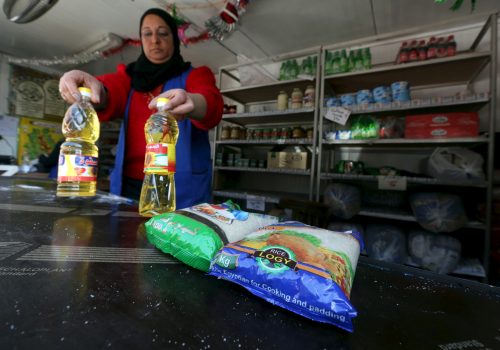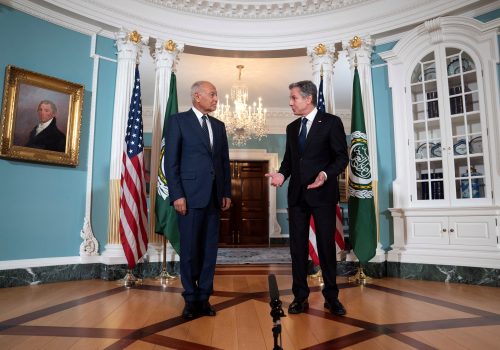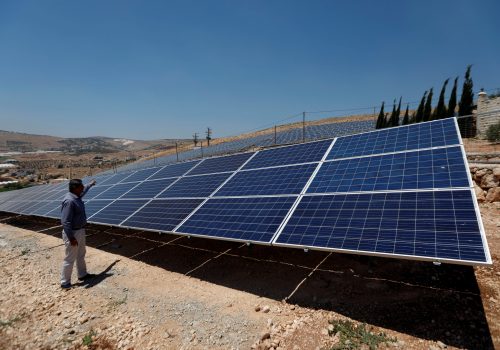The path to transforming Iraqi Kurdistan’s economic diversity and potential
As part of its efforts to strengthen the Kurdistan Region of Iraq, the Kurdistan Regional Government (KRG) has endeavored to establish a diversified economy through Vision 2020 and Vision 2030. The KRG has undertaken numerous initiatives to achieve this significant objective, including administrative reform, digital transformation, agricultural development, banking system advancement, and the implementation of a tax regime.
Developing a robust economy requires several interdependent variables and factors, which vary according to a country’s specific situation. In addition to transparent and efficient government institutions and an independent judiciary, a well-functioning legal framework and effective regulatory bodies should exist to encourage business growth, safeguard property rights, and enforce contracts. The KRG has made transportation investments in areas where local governments have accepted responsibility, and it would be helpful if there was greater emphasis on additional infrastructure development, such as renewable energy and communication technologies, to facilitate economic activities and trade.
Economic development and prosperity require an open and competitive market where free and fair competition is promoted, barriers to entry are minimized, and a level playing field is ensured for businesses to flourish, all while aiming at encouraging innovation, efficiency, and consumer choice. Moreover, social inclusion should be ensured by promoting equitable access to opportunities, combating poverty, and establishing social safety nets. Through this strategy, the KRG will be able to cultivate a culture of innovation through research and development (R&D) incentives, intellectual property protection, and access to financing, as well as by promoting entrepreneurship and supporting small and medium-sized businesses. The KRG has already started on this by introducing incentives for innovation and providing funding for small businesses and young entrepreneurs.
Recognizing shortcomings and ways to overcome them
The KRG has recognized that there are shortcomings in the financial system. As a result, there have been efforts to establish a robust banking industry. To facilitate economic transactions and financial stability, the government should develop well-regulated capital markets and an efficient mechanism for capital allocation, investment, and risk management, which will attract foreign investors and facilitate international trade. On the other hand, the government should emphasize restoring trust between the public and the bank, as most individuals currently save their money at home. An additional sociocultural barrier to successfully addressing the challenges of economic diversification pertains to the role of women and their empowerment within the context of economic development. The KRG has already undertaken various initiatives and endeavors in this regard.
The government has also made the digital transformation and information and communications technology advancement. With expanding broadband connectivity and establishing a fiber-optic network, the KRG is moving swiftly toward promoting and implementing e-governance, which will facilitate digital innovation, e-commerce, and improved access to information and communication services—all to foster a culture of transparency.
With the KRG having ambitious plans, the elephant in the room is that the government has been caught between its ambition and the capacity to translate it into action.
There are obstacles that hinder the creation of infrastructure for a diversified economy. The region’s political challenges and internal conflict create an uncertain business climate, discourage foreign investment, and disrupt economic activities. In addition to the volatility of oil prices, the unpredictability of oil sector administration and the delicate nature of fully committing to the Erbil-Baghdad agreement on oil export pose a challenge to providing adequate capital for economic diversification.
The vital role of education in diversifying the economy
Developing this type of reliable infrastructure calls for the formulation of workable policies. It is difficult to design policies that would appeal to foreign investors with the current capacity of the legislative apparatus. Building capacity requires cultivating a culture of continuing education and this cannot happen quickly. Building a thriving and sustainable economy relies on equipping the workforce with essential skills, and academic institutions play a crucial role in this endeavor. However, the current education system faces challenges in supporting this goal. To overcome these obstacles, employers must establish strong partnerships with academic institutions through public-private partnerships (PPPs). Together, they can develop program-level educational objectives that address the evolving needs of various industries.
Among these objectives, professionalism takes center stage, instilling in students a strong sense of ethics, responsibility, and prioritizing the public interest. Moreover, critical thinking and problem-solving skills are vital competencies to be fostered. Soft skills, such as effective communication, teamwork, and hands-on experimentation, must be integrated into every curriculum and accurately measured for progress. Academic institutions can further empower future professionals by exposing students to entrepreneurship and innovation tools within their studies.
Financial and digital literacy also deserve emphasis within the curriculum, as these competencies are increasingly important in today’s evolving landscape. In line with PPPs, academic institutions should take on the responsibility of establishing well-equipped incubation centers and research facilities, cultivating a culture of R&D. This holistic approach requires a comprehensive reform of the education system, which is a process that may take up to a decade to fully realize. The KRG is currently aiming to create the Kurdistan Accrediting Association for Education (KAAE), which is set to play a pivotal role in driving substantial advancements in the realm of educational reform within the region. Therefore, it is crucial to initiate these reforms promptly, enabling the KRG to witness positive outcomes sooner.
Furthermore, it is essential to provide professional development programs, such as workshops and training sessions, to enhance the skills of current employees in the job market. By investing in the continuous growth of the workforce, the KRG can ensure that the economy remains competitive and adaptive to future challenges.
The way forward
It’s clear that the KRG’s payroll is excessively bloated, reportedly comprising a significant portion of the government’s spending—a staggering 42 percent. Comparatively, the US government allocated 17 percent of its spending to payrolls in 2022, while the European Union government averaged 13 percent in 2021.
To rectify this issue and align payroll spending with international standards, the KRG should establish a dedicated budget for redundant employees and transfer these funds to the private sector for five years—contingent on the private sector’s commitment to hiring these redundant employees. A portion of this allocation can also be directed towards infrastructure development, specifically for R&D initiatives, and creating a pension scheme, which can serve as a compelling incentive for the younger generation to pursue employment elsewhere than the KRG.
Simultaneously, the KRG should collaborate with international partners to formulate policies and guidelines, ensuring the establishment of robust professional development programs for both downsized KRG employees and new hires in the private sector. Within five years, the KRG will significantly reduce its employment size, bringing payroll spending to an acceptable percentage of the expenditure and freeing up substantial resources for development and strategic priorities. Moreover, the five-year financial support provided to the private sector will bolster its stability and accelerate economic diversification.
In order to make informed decisions regarding the development, it is essential to establish an infrastructure for assessment and continuous improvement, which can be accomplished by establishing an exhaustive data interpretation procedure. KRG should promote data exchange between government agencies, research institutes, and businesses while safeguarding data privacy and security. The development of data-driven Artificial Intelligence (AI) can be facilitated by promoting open data initiatives and establishing data governance frameworks.
Through data interpretation, the KRG can identify critical industries where AI can have a disruptive effect, such as education, healthcare, agriculture, industry, energy, transportation, and smart villages. Prioritizing investments and research efforts in these areas can develop AI-driven solutions that resolve specific problems, improve efficiency, and generate new economic opportunities. Nonetheless, it is essential to establish ethical principles and regulatory frameworks to enable the development and implementation of AI responsibly and transparently.
Building capacity is a process that may take a decade, if not longer, to yield results, particularly for a government that has some challenges rooted in the system for the past decades. The self-sufficiency and sustainability of a government are contingent on a strong economy, and this is the path the KRG has taken. Such a diversified economy should replace the single-commodity economy, where oil is central to all revenues. Only then a prosperous nation can be built. Once a successful economic model is established in the Kurdistan Region, it can be extended and applied throughout the rest of Iraq.
Dr. Honar Issa is the secretary of the Board of Trustees at the American University of Kurdistan (AUK). He also serves as the director of the Middle East Peace and Security Forum, a prominent event hosted by AUK annually.
Further reading
Wed, Aug 31, 2022
Climate vulnerability and food insecurity in MENA should be priorities for US policymakers
MENASource By
Food security conditions in MENA could become perilously worse as the Russian war increases stress and shortages in the global food supply chains that the region heavily depends on.
Tue, Aug 8, 2023
Could a regional bloc work in the MENA or is it a fool’s errand?
MENASource By Negah Angha
Addressing the regional conundrum requires transcending the traditional boundaries of geopolitical competition.
Tue, Sep 1, 2020
Energy cooperation in the Middle East is a necessary step toward regional security
MENASource By Ariel Ezrahi
Mutual energy dependencies can help mitigate political tensions, creating incentives to cooperate and possibly facilitating a positive momentum towards solving some of the MENA region’s thornier outstanding political conflicts
Image: A general view shows the Citadel of Erbil in Erbil, Iraq April 23, 2017. Picture taken April 23, 2017. REUTERS/Azad Lashkari


